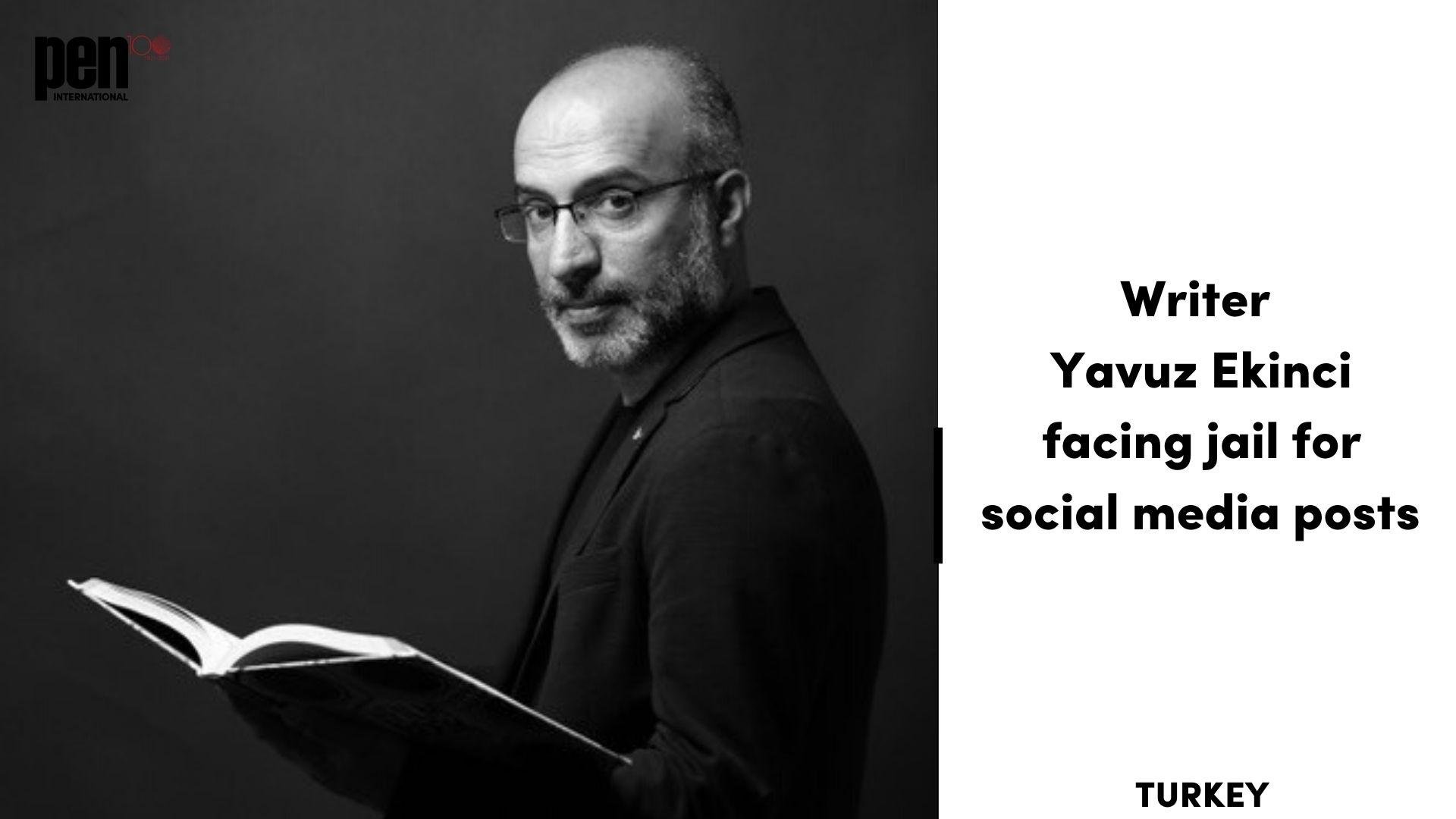Turkey: Writer Yavuz Ekinci facing jail for social media posts
Yavuz Ekinci (Credit: Ege Tonbul)
The Turkish authorities must drop all charges against Yavuz Ekinci, PEN International said today, as the writer faces up to seven-and-a-half years in prison over his social media posts. The first hearing in the case will be held on 9 September. The organisation further calls on the authorities to stop using overbroad counter-terrorism laws to curb peaceful expression – both online and offline.
Yavuz Ekinci has been charged with ‘making terrorist propaganda’ under Article 7/1 and 2 of Anti-Terror Law No. 3713, for eight tweets published on his Twitter account in 2013 and 2014. The tweets, none of which promote or incite violence, for the most part related to the Newroz (New Year) celebrations in Diyarbakır, south-eastern Turkey, and to the battle of Kobane in Syria. The indictment comes in the wake of a sustained social media crackdown that has seen tens of thousands of people prosecuted in Turkey over their social media posts in recent years. The Ministry of Interior said it took legal action against 6,743 users in the first seven months of 2020 alone.
‘The Turkish authorities’ sustained onslaught on peaceful speech on the internet shows no sign of abating and is prompting self-censorship. PEN International has repeatedly condemned the use of overbroad counter-terrorism laws to punish dissenting views. Yavuz Ekinci’s tweets cannot in any way be read as terrorist propaganda. We urge the Turkish authorities to drop these absurd charges against him and to take all necessary steps to guarantee freedom of expression online’, said Salil Tripathi, Chair of PEN International’s Writers in Prison Committee.
Additional information
Yavuz Ekinci, 42, has received multiple prestigious awards for his short stories, including the 2005 Haldun Taner Award and the 2007 Yunus Nadi Award. His work focuses on the plight of Kurdish people in Turkey and has been translated into English, German, and Kurdish. He currently works as a teacher in Istanbul.
Amendments to the Internet Law, adopted in July 2020, severely undermine freedom of expression online. Social media companies with over one million users a day are required to have offices in Turkey and comply with government demands to block and remove content or else face administrative fines of up to 40 million Turkish Lira (approximately €5,000,000), a ban on advertising on their platforms and the reduction of their internet bandwidth by up to 90% – rendering them unusable. Social media platforms including Twitter, YouTube and Wikipedia have been blocked in the past on the basis of content shared on their platforms.
Tens of thousands of people have been arrested and prosecuted for their social media posts in recent years, typically charged with spreading terrorist propaganda, defamation or insulting the president. In the context of Covid-19, 510 social media users were reportedly detained for questioning between 11 March and 21 May 2020, including for posts deemed to ‘create fear and panic’. Some of these postings contained criticism of the authorities’ response to the pandemic.
For more information about the state of freedom of expression in Turkey, and how the Turkish authorities are using counter-terrorism and defamation laws to target dissenting views online and offline, please click here.
For further details contact Aurélia Dondo at PEN International, Koops Mill, 162-164 Abbey Street, London, SE1 2AN, UK Tel: +44 (0) 20 7405 0338 email: [email protected]

